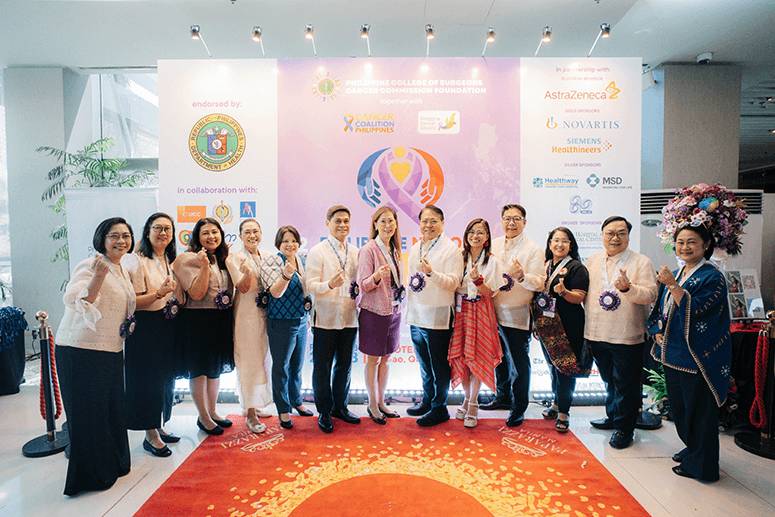Philippine National Cancer Summit 2025 calls for urgent action to strengthen cancer care in the country
BrandedUp in partnership with Philippine National Cancer Summit 2025
With cancer claiming over 254 Filipino lives daily and more than 150,000 new cases reported annually, urgent and collective action is needed to strengthen the country’s cancer care system. This was the central message of the Philippine National Cancer Summit 2025 (PNCS), held on Feb. 27-28 at Novotel Manila, Araneta City.
Organized by the Philippine College of Surgeons Cancer Commission Foundation (PCS CANCOM), the summit brought together over 2,500 attendees—including government officials, medical experts, patient advocates, and industry leaders—to address critical gaps in prevention, treatment, and survivorship.

Quezon City Mayor Joy Belmonte set the tone of the summit: “Let’s redefine the fight against cancer together.”
Health Secretary Ted Herbosa, through his speech delivered by Dr. Manuel Francisco Roxas, National Integrated Cancer Control Council member and PCS Cancer Commission chair, emphasized a shared vision for equitable care. “Together, we will build a resilient cancer care ecosystem.”

Recognizing the financial burden of treatment, Senator Risa Hontiveros stressed that “cancer should not be a death sentence, nor should it drive families into poverty. We must treat not just the cancers of people, but also the cancers of society—including the high cost of care.”
DILG Asec. Lilian De Leon urged stronger public-private collaboration, while PhilHealth CEO Dr. Edwin Mercado committed to faster, fairer, and more responsive cancer coverage.

Key action points
The summit identified five urgent priorities to improve cancer care:
- Expanding cancer care networks – strengthening regional hospitals, barangay health workers, and early detection programs
- Ensuring affordable access – pushing for full implementation of NICCA and stronger PhilHealth support
- Advancing innovation – investing in precision medicine, AI-driven diagnostics, and telehealth solutions
- Implementing data-driven standards – establishing a National Cancer Registry to guide evidence-based policies and improve healthcare planning
- Building a culture of prevention – strengthening public awareness campaigns on screening, vaccination, and early detection to reduce cancer incidence
Dr. Roxas reinforced the need for a multi-sectoral approach. “A resilient cancer care ecosystem requires everyone—government, healthcare providers, and communities—working together.”

As cancer survivor Melissa De Leon-Joseph declared, “Cancer does not just test the body—it tests the mind, heart, and soul. Today, I am not just a survivor, but a conqueror.”
The challenge ahead is immense, but with stronger collaboration, sustainable funding, and patient-centered innovation, the goal of a cancer-free Philippines is no longer just a vision—it is a commitment.

* * *
Editor’s Note: This article was provided by the Philippine National Cancer Summit.


